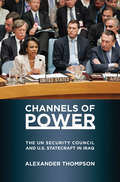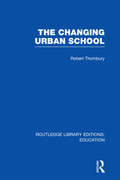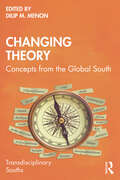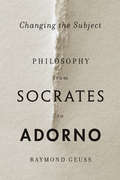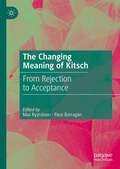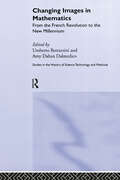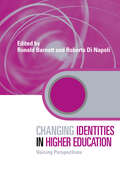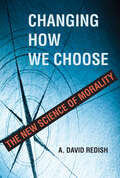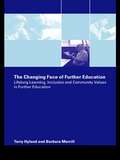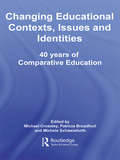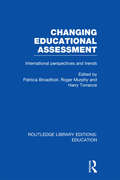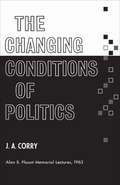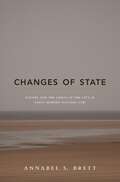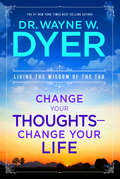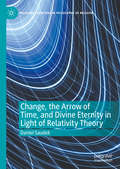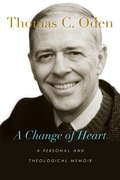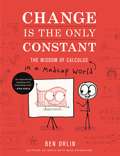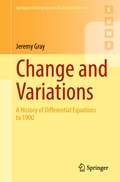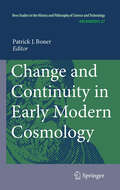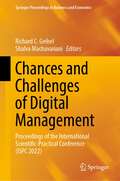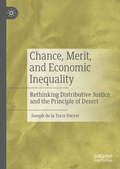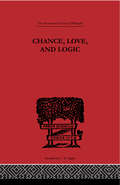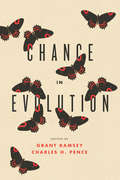- Table View
- List View
Channels of Power: The UN Security Council and U.S. Statecraft in Iraq
by Alexander ThompsonWhen President George W. Bush launched an invasion of Iraq in March of 2003, he did so without the explicit approval of the Security Council. His father's administration, by contrast, carefully funneled statecraft through the United Nations and achieved Council authorization for the U.S.-led Gulf War in 1991. The history of American policy toward Iraq displays considerable variation in the extent to which policies were conducted through the UN and other international organizations. In Channels of Power, Alexander Thompson surveys U.S. policy toward Iraq, starting with the Gulf War, continuing through the interwar years of sanctions and coercive disarmament, and concluding with the 2003 invasion and its long aftermath. He offers a framework for understanding why powerful states often work through international organizations when conducting coercive policies-and why they sometimes choose instead to work alone or with ad hoc coalitions. The conventional wisdom holds that because having legitimacy for their actions is important for normative reasons, states seek multilateral approval. Channels of Power offers a rationalist alternative to these standard legitimation arguments, one based on the notion of strategic information transmission: When state actions are endorsed by an independent organization, this sends politically crucial information to the world community, both leaders and their publics, and results in greater international support.
The Changing Urban School (Routledge Library Editions: Education)
by Robert ThornburyThe author takes a long look at what goes on in schools, and the roles played by people specifically concerned with them: but finally the problems of the school are seen as indissolubly bound up with the changes that have overtaken urban life. The school cannot be isolated, teachers, administrators, planners and parents must actively co-operate in making the school work in society and a society which works for the school. Nothing other than such a total vision, he concludes, will enable us to achieve normal educational goals. Robert Thornbury writes out of fifteen years experience of the urban school and of the problems not only of Britain but also those sometime similar, often more acute, of other countries, in particular the United States and Australia. The need for a total urban strategy is worldwide. His point of view is broad-based but his sympathies lie most of all with the hard-working teacher who stayed on in the urban classroom. It is a book for teachers therefore, but also, by its own argument, for all concerned with the future of the inner-city and the reordering of education.
Changing Theory: Concepts from the Global South
by Dilip M. MenonThis book is an original, systematic, and radical attempt at decolonizing critical theory. Drawing on linguistic concepts from 16 languages from Asia, Africa, the Arab world, and South America, the essays in the volume explore the entailments of words while discussing their conceptual implications for the humanities and the social sciences everywhere. The essays engage in the work of thinking through words to generate a conceptual vocabulary that will allow for a global conversation on social theory which will be necessarily multilingual. With essays by scholars, across generations, and from a variety of disciplines – history, anthropology, and philosophy to literature and political theory – this book will be essential reading for scholars, researchers, and students of critical theory and the social sciences.
Changing the Subject: Philosophy from Socrates to Adorno
by Raymond GeussFor Raymond Geuss, philosophers’ attempts to bypass normal ways of thinking—to point out that the question being asked is itself misguided—represents philosophy at its best. By provoking people to think differently, philosophers make clear that we are not fated to live within the stifling systems of thought we inherit. We can change the subject.
The Changing Meaning of Kitsch: From Rejection to Acceptance
by Max Ryynänen Paco BarragánThis book inaugurates a new phase in kitsch studies. Kitsch, an aesthetic slur of the 19th and the 20th century, is increasingly considered a positive term and at the heart of today’s society. Eleven distinguished authors from philosophy, cultural studies and the arts discuss a wide range of topics including beauty, fashion, kitsch in the context of mourning, bio-art, visual arts, architecture and political kitsch. In addition, the editors provide a concise theoretical introduction to the volume and the subject. The role of kitsch in contemporary culture and society is innovatively explored and the volume aims not to condemn but to accept and understand why kitsch has become acceptable today.
Changing Images in Mathematics: From the French Revolution to the New Millennium (Routledge Studies in the History of Science, Technology and Medicine #13)
by Umberto Bottazzini Amy Dahan DalmedicoThis book focuses on some of the major developments in the history of contemporary (19th and 20th century) mathematics as seen in the broader context of the development of science and culture. Avoiding technicalities, it displays the breadth of contrasting images of mathematics favoured by different countries, schools and historical movements, showing how the conception and practice of mathematics changed over time depending on the cultural and national context. Thus it provides an original perspective for embracing the richness and variety inherent in the development of mathematics. Attention is paid to the interaction of mathematics with themes whose proper treatment have been neglected by the traditional historiography of the discipline, such as the relationship between mathematics, statistics and medicine.
Changing Identities in Higher Education: Voicing Perspectives (Key Issues in Higher Education)
by Ronald Barnett Roberto Di NapoliIn this timely and innovative book scholars from Europe, the UK, North America and Australia, explore their own sense of identity, reflecting both on their research and scholarly interests, and their work experiences. Taking the form of a debate, Changing Identities in Higher Education helps to widen the contemporary space for debates on the future of higher education itself. The book is split into three parts: part one presents a set of essays each on a set of identities within higher education (academic, student, administrative/managerial and educational developers). part two includes responses to Part one from authors speaking from their own professional and scholarly identity perspective part three illustrates perspectives on the identities of students, provided by students themselves. With its original, dialogic form and varied content, this book is of interest to all those concerned in current debates about the state and nature of higher education today and those interested in questions of identity. It makes especially useful reading for students of higher education, lecturers in training, academics and managers alike.
Changing How We Choose: The New Science of Morality
by A. David RedishThe &“new science of morality&” that will change how we see each other, how we build our communities, and how we live our lives.In Changing How We Choose, David Redish makes a bold claim: Science has &“cracked&” the problem of morality. Redish argues that moral questions have a scientific basis and that morality is best viewed as a technology—a set of social and institutional forces that create communities and drive cooperation. This means that some moral structures really are better than others and that the moral technologies we use have real consequences on whether we make our societies better or worse places for the people living within them. Drawing on this new scientific definition of morality and real-world applications, Changing How We Choose is an engaging read with major implications for how we see each other, how we build our communities, and how we live our lives.Many people think of human interactions in terms of conflicts between individual freedom and group cooperation, where it is better for the group if everyone cooperates but better for the individual to cheat. Redish shows that moral codes are technologies that change the game so that cooperating is good for the community and for the individual. Redish, an authority on neuroeconomics and decision-making, points out that the key to moral codes is how they interact with the human decision-making process. Drawing on new insights from behavioral economics, sociology, and neuroscience, he shows that there really is a &“new science of morality&” and that this new science has implications—not only for how we understand ourselves but also for how we should construct those new moral technologies.
The Changing Face of Further Education: Lifelong Learning, Inclusion and Community Values in Further Education
by Terry Hyland Barbara MerrillWhat are the values and policies which are driving the development of Further Education institutions?The rapid expansion and development of the post-compulsory sector of education means that further education institutions have to cope with ever-evolving government policies.This book comprehensively examines the current trends in further education by means of both policy analysis and research in the field. It offers an insightful evaluation of FE colleges today, set against the background of New Labour Lifelong Learning initiatives and, in particular, the links between college and community.This timely investigation of FE and New Labour policy, takes a unique community education perspective to determine whether the social objectives of current policy can be achieved by policy-makers, managers, staff and students in FE institutions.For students, lecturers and educators in the post-compulsory sector, in addition to policy-makers and managers, this is an invaluable source of information on a subject which is still largely under-researched.
Changing Educational Contexts, Issues and Identities: 40 Years of Comparative Education (Education Heritage)
by Michael Crossley Patricia Broadfoot Michele SchweisfurthDocumenting major intellectual and paradigmatic changes in the field of comparative education in the light of the history and development of the journal Comparative Education, this book compiles a selection of articles from forty years of the journal’s distinguished history. It illustrates how changing times have been reflected in the nature and quality of published comparative research. Contributors explore the impact of key issues such as marketisation, accountability and globalisation upon policy and practice world-wide. They explore how new challenges faced by the social sciences have seen shifts in the contexts, issues and priorities attended to by comparatives and how different approaches to comparative education have influenced the intellectual and professional identities and positioning of those involved. Bridging theoretically oriented scholarship with empirically grounded research relating to issues of policy and practice and with chapters addressing questions of relevance throughout the world, this book is an invaluable resource of ideas and stimuli for further thinking and research.
Changing Educational Assessment: International Perspectives and Trends (Routledge Library Editions: Education)
by Patricia Broadfoot Harry Torrance Roger MurphyAssessment is a key area of interest and debate in education. Its increased use by governments as a powerful means of influencing educational practice are now features of the educational scene worldwide. This volume was the first major international review of such developments and it explores the impact of assessment on all areas of education, from teaching skills to policy-making. The contributors take a global perspective to spotlight the common problems facing teachers and students, policy-makers and politicians through the world as they seek to reconcile issues of equity and national development, educational imperatives and finite state resources. The contributions discuss the changing role of assessment and public examinations, and consider such specific issues as the development of a market economy in educational provision, the difficulties of measuring standards in international studies, and accreditation of absolute rather than relative competencies.
Changing Course in Latin America
by Kenneth M. RobertsThis book explores the impact of economic crises and free-market reforms on party systems and political representation in contemporary Latin America. It explains why some patterns of market reform align and stabilize party systems, whereas other patterns of reform leave party systems vulnerable to widespread social protest and electoral instability. In contrast to other works on the topic, this book accounts for both the institutionalization and the breakdown of party systems, and it explains why Latin America turned to the Left politically in the aftermath of the market-reform process. Ultimately, it explains why this "left turn" was more radical in some countries than others and why it had such varied effects on national party systems.
The Changing Conditions of Politics
by James CorryJ.A. Corry, one of Canada's outstanding political scientists, in the Alan B. Plaunt Lectures for 1963 has contributed a brilliant and provocative analysis of the changed world in which politics and students of politics must operate today. He suggests first that political studies can no longer be confined to the frame long held adequate. The eighteenth-century view of man as essentially rational suited an age of individualism and liberal optimism but is inadequate for politics in our mass society: here theology has something to contribute. Political science has in the past confined its attention to the operation of governments and political parties but has not for this age taken enough account of the influence of the social structure as a whole on political behaviour: here is where sociology may speak. With this background Principal Corry talks of the difficulties of understanding our present-day political ideas and theories hitherto usually relied on for the purpose. He goes on to look at some aspects of the collectivist, mass society we live in today and to consider how far these may be producing new dimensions in political behaviour.There is abroad today a mood of disenchantment and frustration because politics has disappointed us but ironically this mood may endanger such recovery of control as is open to us. Effective power is being gathered into relatively few hands. In this society where will the individual find confidence and self-reliance and a sense of responsibility? We face a dilemma in "the end of ideology," in the slipping of convictions about what can be achieved through politics, and this affects both governments, politicians and individuals. Answers to the many questions about human nature and society which this dilemma presents are not easy to find, but must be sought. The skill and power with which Principal Corry has marshalled the questions ensure our attention and concern.
Changes of State: Nature and the Limits of the City in Early Modern Natural Law
by Annabel S. BrettThis is a book about the theory of the city or commonwealth, what would come to be called the state, in early modern natural law discourse. Annabel Brett takes a fresh approach by looking at this political entity from the perspective of its boundaries and those who crossed them. She begins with a classic debate from the Spanish sixteenth century over the political treatment of mendicants, showing how cosmopolitan ideals of porous boundaries could simultaneously justify the freedoms of itinerant beggars and the activities of European colonists in the Indies. She goes on to examine the boundaries of the state in multiple senses, including the fundamental barrier between human beings and animals and the limits of the state in the face of the natural lives of its subjects, as well as territorial frontiers. Drawing on a wide range of authors, Brett reveals how early modern political space was constructed from a complex dynamic of inclusion and exclusion. Throughout, she shows that early modern debates about political boundaries displayed unheralded creativity and virtuosity but were nevertheless vulnerable to innumerable paradoxes, contradictions, and loose ends. Changes of State is a major work of intellectual history that resonates with modern debates about globalization and the transformation of the nation-state.
Change Your Thoughts—Change Your Life: Living The Wisdom Of The Tao
by Wayne W. DyerFive hundred years before the birth of Jesus, a God-realized being named Lao-tzu in ancient China dictated 81 verses, which are regarded by many as the ultimate commentary on the nature of our existence. The classic text of these 81 verses, called the Tao Te Ching or the Great Way, offers advice and guidance that is balanced, moral, spiritual, and always concerned with working for the good.In this book, Dr. Wayne W. Dyer has reviewed hundreds of translations of the Tao Te Ching and has written 81 distinct essays on how to apply the ancient wisdom of Lao-tzu to today’s modern world. This work contains the entire 81 verses of the Tao, compiled from Wayne’s researching of 12 of the most well-respected translations of text that have survived for more than 25 centuries. Each chapter is designed for actually living the Tao or the Great Way today. Some of the chapter titles are "Living with Flexibility," "Living Without Enemies," and "Living by Letting Go." Each of the 81 brief chapters focuses on living the Tao and concludes with a section called "Doing the Tao Now."Wayne spent one entire year reading, researching, and meditating on Lao-tzu’s messages, practicing them each day and ultimately writing down these essays as he felt Lao-tzu wanted you to know them.This is a work to be read slowly, one essay a day. As Wayne says, "This is a book that will forever change the way you look at your life, and the result will be that you’ll live in a new world aligned with nature. Writing this book changed me forever, too. I now live in accord with the natural world and feel the greatest sense of peace I’ve ever experienced. I’m so proud to present this interpretation of the Tao Te Ching, and offer the same opportunity for change that it has brought me."
Change, the Arrow of Time, and Divine Eternity in Light of Relativity Theory (Palgrave Frontiers in Philosophy of Religion)
by Daniel SaudekThis book has two aims; first, to provide a new account of time's arrow in light of relativity theory; second, to explain how God, being eternal, relates to our world, marked as it is by change and time.In part one, Saudek argues that time is not the expansive universal 'wave' that is appears to be, but nor are we living in an unchanging block. Rather, time is real but local: there are infinitely many arrows of time in the universe, each with their own fixed past and open future. This model is based on the ontology of substances which can exist in different states, marked by different properties. On this basis, a derivation of temporal precedence and of the asymmetry between the fixed past and the open future is provided. Time's arrow is thus 'attached' to substances, and is therefore a local rather than global phenomenon, though by no means an illusory or merely subjective one.In part two, this model is then applied to the perennial questions concerning the relationship between divine eternity and the temporal world: How can my future choices be free if God already knows what I will do? Can God act if He is not in time? Through the lens of relativity theory, such questions are shown to appear in a completely new light. The book combines insights from theoretical physics with ancient and contemporary philosophy into a unique synthesis, broaching a wealth of key issues including the arrow of time, the evolution of the cosmos, and a physics-based defence of eternalism in philosophical theology.
A Change of Heart: A Personal and Theological Memoir
by Thomas C. OdenPreaching's2014 Best Theological Memoir from Byron Borger, Hearts and Minds BookstoreAncient Christian Commentary on Scripture.
Change Is the Only Constant: The Wisdom of Calculus in a Madcap World
by Ben OrlinThe next book from Ben Orlin, the popular math blogger and author of the underground bestseller Math With Bad Drawings. Change Is The Only Constant is an engaging and eloquent exploration of the intersection between calculus and daily life, complete with Orlin's sly humor and wonderfully bad drawings. Change is the Only Constant is an engaging and eloquent exploration of the intersection between calculus and daily life, complete with Orlin's sly humor and memorably bad drawings. By spinning 28 engaging mathematical tales, Orlin shows us that calculus is simply another language to express the very things we humans grapple with every day -- love, risk, time, and most importantly, change. Divided into two parts, "Moments" and "Eternities," and drawing on everyone from Sherlock Holmes to Mark Twain to David Foster Wallace, Change is the Only Constant unearths connections between calculus, art, literature, and a beloved dog named Elvis. This is not just math for math's sake; it's math for the sake of becoming a wiser and more thoughtful human.
Change and Variations: A History of Differential Equations to 1900 (Springer Undergraduate Mathematics Series)
by Jeremy GrayThis book presents a history of differential equations, both ordinary and partial, as well as the calculus of variations, from the origins of the subjects to around 1900. Topics treated include the wave equation in the hands of d’Alembert and Euler; Fourier’s solutions to the heat equation and the contribution of Kovalevskaya; the work of Euler, Gauss, Kummer, Riemann, and Poincaré on the hypergeometric equation; Green’s functions, the Dirichlet principle, and Schwarz’s solution of the Dirichlet problem; minimal surfaces; the telegraphists’ equation and Thomson’s successful design of the trans-Atlantic cable; Riemann’s paper on shock waves; the geometrical interpretation of mechanics; and aspects of the study of the calculus of variations from the problems of the catenary and the brachistochrone to attempts at a rigorous theory by Weierstrass, Kneser, and Hilbert. Three final chapters look at how the theory of partial differential equations stood around 1900, as they were treated by Picard and Hadamard. There are also extensive, new translations of original papers by Cauchy, Riemann, Schwarz, Darboux, and Picard. The first book to cover the history of differential equations and the calculus of variations in such breadth and detail, it will appeal to anyone with an interest in the field. Beyond secondary school mathematics and physics, a course in mathematical analysis is the only prerequisite to fully appreciate its contents. Based on a course for third-year university students, the book contains numerous historical and mathematical exercises, offers extensive advice to the student on how to write essays, and can easily be used in whole or in part as a course in the history of mathematics. Several appendices help make the book self-contained and suitable for self-study.
Change and Continuity in Early Modern Cosmology (Archimedes #27)
by Patrick BonnerViewed as a flashpoint of the Scientific Revolution, early modern astronomy witnessed a virtual explosion of ideas about the nature and structure of the world. This study explores these theories in a variety of intellectual settings, challenging our view of modern science as a straightforward successor to Aristotelian natural philosophy. It shows how astronomers dealt with celestial novelties by deploying old ideas in new ways and identifying more subtle notions of cosmic rationality. Beginning with the celestial spheres of Peurbach and ending with the evolutionary implications of the new star Mira Ceti, it surveys a pivotal phase in our understanding of the universe as a place of constant change that confirmed deeper patterns of cosmic order and stability.
Chances and Challenges of Digital Management: Proceedings of the International Scientific-Practical Conference (ISPC 2022) (Springer Proceedings in Business and Economics)
by Richard C. Geibel Shalva MachavarianiThis book presents selected contributions to the International Scientific-Practical Conference 2022 (ISCP 2022) organized by East European University (Georgia) and E-Commerce Institute (Germany). It discusses the possibilities of digital management under current conditions, highlights recent technological advances, and addresses further marketing perspectives. The topics covered include digitalization, digital transformation, e-commerce, artificial intelligence, big data, blockchain, online marketing, the transformation of small and medium-sized businesses, digital law, digital social innovation, and digital ethics.
Chance, Merit, and Economic Inequality: Rethinking Distributive Justice and the Principle of Desert
by Joseph de DwyerThis book develops a novel approach to distributive justice by building a theory based on a concept of desert. As a work of applied political theory, it presents a simple but powerful theoretical argument and a detailed proposal to eliminate unmerited inequality, poverty, and economic immobility, speaking to the underlying moral principles of both progressives who already support egalitarian measures and also conservatives who have previously rejected egalitarianism on the grounds of individual freedom, personal responsibility, hard work, or economic efficiency. By using an agnostic, flexible, data-driven approach to isolate luck and ultimately measure desert, this proposal makes equal opportunity initiatives both more accurate and effective as it adapts to a changing economy. It grants to each individual the freedom to genuinely choose their place in the distribution. It provides two policy variations that are perfectly economically efficient, and two others that are conditionally so. It straightforwardly aligns outcomes with widely shared, fundamental moral intuitions. Lastly, it demonstrates much of the above by modeling four policy variations using 40 years of survey data from the Panel Study of Income Dynamics.
Chance, Love, and Logic: Philosophical Essays (International Library of Philosophy)
by Charles S. PeirceFirst published in 2000. Routledge is an imprint of Taylor & Francis, an informa company.
Chance in Evolution
by Charles H. Pence Grant RamseyHumans, however much we would care to think otherwise, do not represent the fated pinnacle of ape evolution. The diversity of life, from single-celled organisms to multicellular animals and plants, is the result of a long, complex, and highly chancy history. But how profoundly has chance shaped life on earth? And what, precisely, do we mean by chance? Bringing together biologists, philosophers of science, and historians of science, Chance in Evolution is the first book to untangle the far-reaching effects of chance, contingency, and randomness on the evolution of life. The book begins by placing chance in historical context, starting with the ancients and moving through Darwin and his contemporaries, documenting how the understanding of chance changed as Darwin's theory of evolution by natural selection developed into the modern synthesis, and how the acceptance of chance in Darwinian theory affected theological resistance to it. Subsequent chapters detail the role of chance in contemporary evolutionary theory--in particular, in connection with the concepts of genetic drift, mutation, and parallel evolution--as well as recent empirical work in the experimental evolution of microbes and in paleobiology. By engaging in collaboration across biology, history, philosophy, and theology, this book offers a comprehensive and synthetic overview both of the history of chance in evolution and of our current best understanding of the impact of chance on life on earth.
Chanakya Niti: चाणक्य नीति
by Dr Ashwini Parasharआचार्य विष्णुगुप्त (चाणक्य) द्वारा प्रणीत चाणक्य नीति का मुख्य विषय मानव मात्र को जीवन के प्रत्येक पहलू की व्यावहारिक शिक्षा देना है। इसमें मुख्य रूप से धर्म, संस्कृति, न्याय, शांति, सुशिक्षा एवं सर्वतोमुखी मानव-जीवन की प्रगति की झांकियां प्रस्तुत की गई हैं। आचार्य चाणक्य के नीतिपरक इस महत्वपूर्ण ग्रंथ में जीवन-सिद्धान्त और जीवन व्यवहार तथा आदर्श यथार्थ का बड़ा सुन्दर समन्वय देखने को मिलता है। जीवन की रीति-नीति सम्बन्धी बातों का जैसा अद्भुत और व्यावहारिक चित्रण यहां मिलता है अन्यत्र दुर्लभ है। इसी लिए यह ग्रन्थ पुरे विश्व में समादृत है।
